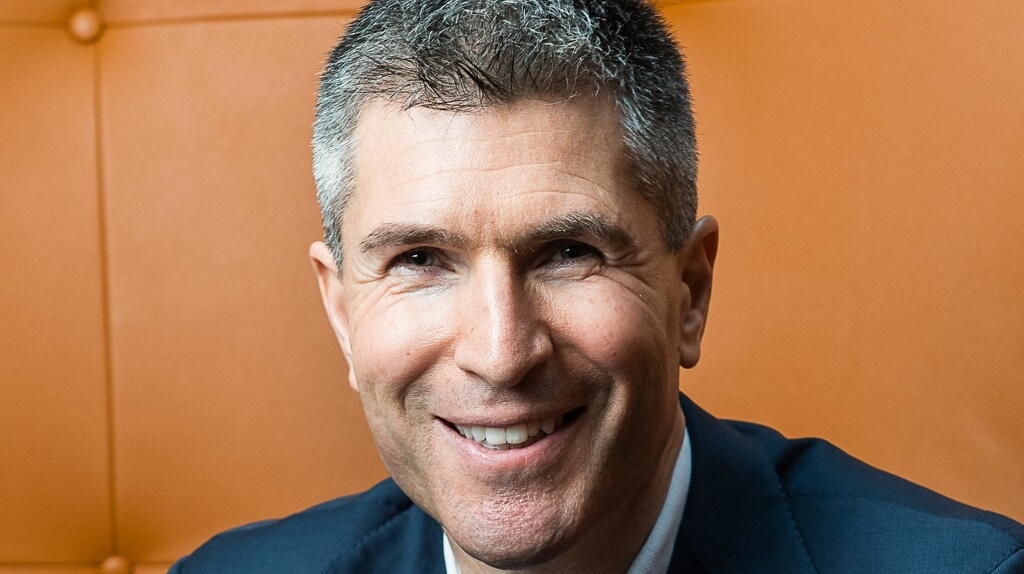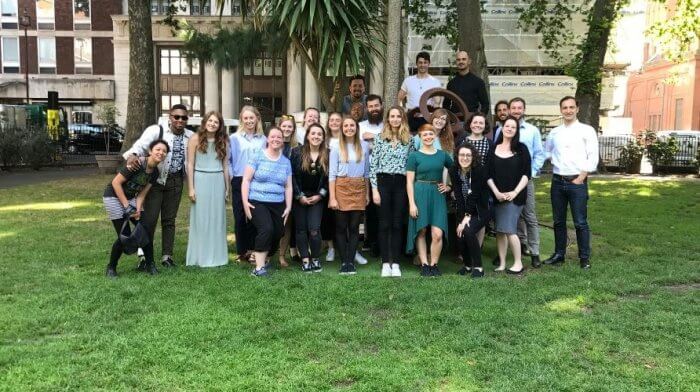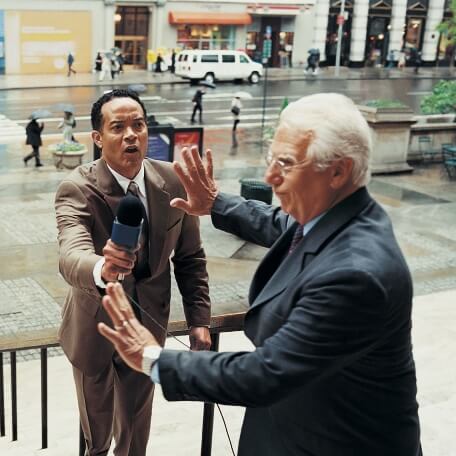How Quill Is Writing Its Own Future
Quill's Ed Bussey talks content, growth and why twin-pronged projects don't always go to plan.

Content creation platform Quill helps businesses reach online audiences via vibrant content. Its growing client list includes blue chip companies ranging from high fashion to travel. Here CEO Ed Bussey explains why clear information is the best way to connect retailers with audiences.
1. What’s the business in a nutshell?
Quill is the leading multi-language content production platform for ecommerce businesses.
We specialise in Primary Content; that is, the content that consumers encounter right before they buy a product or service online, including, for example, product descriptions and buying guides on retail websites, or hotel reviews and destination guides on travel sites.
Primary Content is the critical layer of content that drives online performance, by increasing website conversion rates and organic search traffic, whilst also helping consumers make faster and more informed purchase decisions.
Quill is uniquely capable of producing consistently high-quality content, in over 40 languages, and at a speed and scale that’s impossible in-house or via traditional agencies.
To date, we’ve produced more than 40 million words of bespoke text, plus visual and interactive content, for over 170 global businesses including Tommy Hilfiger, Thomas Cook, Farfetch, Dunhill, John Lewis, Louis Vuitton, Google and eBay.
2. Why did you start it?
I first encountered the huge global challenges associated with ecommerce content as a member of the founding team and Global Marketing Director of early online fashion retailer figleaves.com.
Although we were outperforming our high street rivals in terms of inventory – offering a significantly larger array of brands, products, colours and sizes – we discovered that our conversion rates nevertheless began falling in some categories.
This was because the sheer scope of choice had actually become overwhelming for our customers, resulting in ‘analysis paralysis’ as an increasing proportion failed to make any purchase decision at all.
It became apparent that, while we had developed a sophisticated online shopping platform, we were failing to provide the same level of pre-purchase information as people would expect to receive in-store from a shop assistant, given the breadth of choice.
The scale of our operation and product inventory meant that our in-house teams simply didn’t have the capacity to provide the helpful content needed.
Furthermore, when I looked out into the market for an external solution that could help solve this massive content production requirement, I drew a complete blank: nobody had a solution that produced high-performance, on-brand Primary Content at the speed and scale demanded by ecommerce.
I could see that this was a problem that was only going to grow, as businesses like figleaves.com continuously expanded their product ranges and began to enter new markets, requiring content in a broader range of languages.
This is why I founded Quill: to address the £10bn per annum global market opportunity for ecommerce content.

A lack of supporting information can make it harder to choose
3. How did the business develop?
Given the figleaves.com experience and advisory engagements with a number of other ecommerce brands during 2010, it was clear to me that existing content production models, whether in-house or via traditional agencies, were just not fit for purpose from an ecommerce perspective – and it was a problem I felt compelled to solve.
So I first started to flesh out the Quill proposition in 2010, sitting alone in a Starbucks on Conduit Street with a blank sheet of paper.
Incidentally, at the time, I also spoke to a few peers from traditional publishers and media companies to run the proposition past them – and all of them told me that what I was trying to do was impossible!
It reminded me of all of the fashion brands we spoke to at the early stages of building figleaves.com, who said that they would never sell their fashion via the internet, and that figleaves.com therefore wouldn’t work. I didn’t agree then and I didn’t agree with the response to Quill either.
Since then, we’ve taken Quill from a blank sheet of paper and one employee (me) into a market-leading and award-winning business, having built our proprietary Quill Cloud technology platform and defined a completely new model, comprising advanced technology and a global network of talent.
To bring some facts to bear: our configuration allows us to produce quality content at unparalleled speed and scale – we have a global network of over 3,000 talented freelancers, working 24/7, creating 400+ words per minute in 40 languages, for some of the world’s biggest brands.
4. Tell us about market conditions.
As a business, we obviously benefit from the fact that we are selling into ecommerce, a sector that is currently enjoying unprecedented growth globally. However, we also have a number of multichannel clients who are very exposed to the high street, where conditions are proving more challenging for some of them at the moment.
From our perspective, the increasing difficulties these retailers in particular are facing, only serve to highlight the urgent need for them to accelerate and optimise their online presence.
The borders between online and physical are breaking down, with many customers researching products online before buying in-store and vice versa. In this sense, by maximising their digital offering, businesses boost conversions in-store as well as online.
The high street success of brands with both a strong digital presence and a great in-store experience is reflective of what’s possible.
As for Brexit – which we get asked about a lot – the reality is that, to date, we haven’t seen any impact. But then Brexit hasn’t yet happened, so if it does impact the wider economy, it does seem likely that it will have an effect on some of our UK centric multi-channel clients.
5. What’s been the biggest challenge?
The biggest challenge I have faced with Quill has also been the most exciting: how to build, from scratch, in the face of a lot of scepticism, a completely new business model.
Because multi-language Primary Content production at scale simply hadn’t been done before Quill, there was no easy blueprint or roadmap for success that we could follow.
As a result, constructing a best-in-class methodology in content creation for our customers has been an enormous learning curve both for me and the team, and of course we’re still on that journey.
From a commercial point of view, another challenge that comes with offering a pioneering new service to the market, is that you can’t assume a prospective client already knows what you can do for them.
Having been involved in building figleaves.com, I was keenly aware that content was a huge and rapidly emerging problem for large ecommerce businesses. However, the performance benefits of high-quality Primary Content still (surprisingly) aren’t widely appreciated, even within the ecommerce sector, more than two decades into its lifetime.
6. What has been your biggest mistake?
At one point in our development, we attempted to develop two Quill Cloud products simultaneously: the tech-enabled content creation service that we offer today, as well as a parallel SaaS (software as a service) product for clients who wanted to build their own talent network.
This was a major time- and resource-sink, resulting in duplicate roadmaps and inefficiencies within our technology team – and in hindsight, we shouldn’t have gone down the SaaS path at that time.

A refined growth strategy helped Quill take control
7. What major bumps in the road have you had and how did you overcome them?
Quill is configured, very deliberately, for growth; as a business, we are lean and seek to use automation and technology as much as possible to drive efficiencies. While this enables us to remain agile, accomplishing a huge amount with comparatively few resources, it also leaves us open to operational strain.
There have been times, in the early stages of working with clients with high-volume content requirements and complex briefs, where this strain has caused friction and forced us to find fast and elegant solutions to new problems, with more than a few headaches and late nights!
Of course, this learning process is invaluable in itself – and thanks to these past experiences, we now take those same types of projects in our stride.
One of the other major issues I’ve encountered over our seven years – and with most early stage companies – is the impact miscalculations on hires can have.
We take a very careful and rigorous approach to interviewing at Quill, but even then there have been occasions where the wrong people have slipped through our net. Fortunately it’s been a rare problem, but every one of these few mistakes has been very time-consuming to reverse out.
8. What sets your business apart from the rest and how have you nurtured this point of difference?
What’s unique about Quill is that we’ve purpose-built a completely new ‘humans in the loop’ approach to content production – combining the best human talent with efficiency-driving, AI-powered technology to overcome the operational challenges of creating consistently high-quality, on-brand, multi-language content at speed and scale.
When producing high volumes of content, it’s absolutely essential to have a flexible, curated on-demand network or talent pool (such as we have at Quill, with freelance content creators located around the world) as well as the enabling technology to efficiently manage that talent, and all the various tasks and work streams associated with it – which is why we developed the Quill Cloud platform.
It’s the powerful combination of these key capabilities (as well as our best-in-class in-house processes, which we call the Quill Methodology) that sets us apart from traditional, non-tech-enabled content agencies and in-house teams. There simply isn’t another service like ours on the market that can do this.
We’ve nurtured this point of difference by investing heavily in our Quill Cloud platform, building a robust roadmap focused around delivering incremental production efficiencies, while also starting to develop machine learning features that will help us to eventually automate large portions of the process that currently require human intervention – for example, automatic allocation of freelancers to client projects based on their skills, experience and past performance.
Equally, we’ve grown our Quill Network to over 3,000 freelancers over the past few years, and we’re continually expanding the network to cover new markets, languages, skillsets and topics.

Quill's core team pictured in 2017
9. How do you attract and retain good people?
Maintaining a strong, positive company culture and ensuring that we recruit and retain the very best talent is a significant area of focus for me personally.
We put a huge amount of effort into hiring driven, results-oriented ‘A-Players’, and I think these sorts of people are drawn to Quill, firstly due to the scale of our ambition, what we’re trying to achieve, and our growing reputation in the market as a disruptive business with an exciting model – but secondly, the high calibre of the team and work environment.
When making new hires, we have a four-step interview process: first with the hiring manager, then with the relevant department director, some form of competency test, and finally an interview with myself.
The only candidates I meet are those in whom my colleagues have complete operational confidence; this final interview helps me ensure that we are hiring the best possible people for each post, both from a skills and particularly a cultural fit perspective.
This rigorous selection process is time-consuming but is, in my opinion, totally worth it: our regular staff surveys – including staff who leave the business – consistently suggest that the calibre and culture of the Quill team is what they value most about working at the company.
In addition, we offer a rewarding non-hierarchical structure in which everyone is able (and encouraged) to share their input and shape the future of the business. We invest heavily in personal and professional development with frequent feedback, appraisals and opportunities for mentoring.
And we foster a friendly and sociable environment with regular socials, away days, Friday drinks and ‘Inspire’ lunchtime learning sessions on a wide range of topics. All of these things to help to ensure the team enjoy the journey at Quill, whilst helping us retain the best talent in an increasingly competitive market.
10. What's your best advice to would-be entrepreneurs?
I have never met an entrepreneur who wished that they had started out later. If you have an idea or see a business opportunity that you think is viable, get going as soon as you can. Whatever happens from there, you are unlikely to regret taking that first leap.
Thanks for signing up to Minutehack alerts.
Brilliant editorials heading your way soon.
Okay, Thanks!


